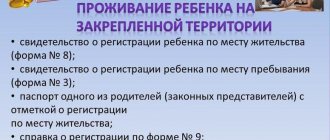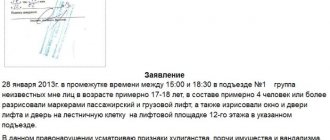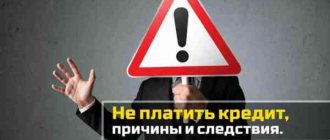Unfortunately, during criminal proceedings, mistakes are often made, due to which a subject not involved in the crime may suffer; Such mistakes can be made by interrogators, investigators, and courts. If this happens, persons brought to criminal liability by mistake, by virtue of Article 53 of the Constitution of the Russian Federation, have the right to count on compensation for damage caused by illegal actions (inaction) of government bodies or officials, that is, rehabilitation.
The main provisions regarding criminal rehabilitation are set out in Chapter 18 of the Code of Criminal Procedure of the Russian Federation. Thus, according to Article 133 of the Code of Criminal Procedure of the Russian Federation, the right to rehabilitation in criminal proceedings is granted to individuals in respect of whom:
- an acquittal was announced (excluding criminal cases of private prosecution);
- the prosecution ended due to the state prosecutor's refusal to charge;
- the prosecution ended due to the absence of an event or corpus delicti, the absence of a statement by the victim in criminal cases of private and private-public accusations, as well as in some other cases established by law;
- the conviction that entered into legal force was cancelled, including partially, and the criminal case was terminated due to the non-involvement of the convicted person in committing a crime or on other grounds established by law;
- when canceling an illegal or unfounded court order to apply compulsory medical measures.
Also, other individuals have the right to rehabilitation in respect of whom procedural coercive measures were illegally practiced (for example, there were illegal detentions, arrests, detention, etc.). Quite often, assistance in economic crimes is required for subjects acting, for example, as witnesses.
“Individuals who have escaped punishment due to an amnesty, expiration of the statute of limitations, not reaching the age of criminal responsibility, the inability to understand the nature of the crime and control their actions due to mental retardation, the adoption of a law that eliminates crime or the punishability of the act cannot count on rehabilitation.”
Rehabilitation in criminal proceedings: what does it include
A citizen who has become a victim of an error by the preliminary investigation or justice authorities has the right to count on:
- Compensation for property damage. The subject can recover from the state, for example, lost income, expenses for the services of a defense lawyer, court fines, the cost of destroyed property, etc. Therefore, in each case the amount may be different.
- Compensation for moral damage. When determining the amount of compensation, you should take into account the duration of the process, the type of sanction, as well as other important points. In addition to money, an employee of the prosecutor's office must apologize to the citizen on behalf of Russia. If information about the criminal case was covered in the media, then the same publication should contain a note about rehabilitation.
- Restoration of labor, property, pension and other powers. For example, someone illegally brought to criminal liability is subject to reinstatement in his previous position at his previous place of work, previously confiscated property is returned to him, his rank is restored, etc.
“A number of controversial issues regarding the use of rehabilitation in criminal proceedings are resolved by the courts in accordance with Resolution of the Plenum of the Supreme Court of the Russian Federation dated November 29, 2011 No. 17 “On the practice of application by courts of the norms of Chapter 18 of the Code of Criminal Procedure of the Russian Federation governing rehabilitation in criminal proceedings”
If a citizen wants to recover property damage, he should apply with the corresponding demand to the court that decided to terminate the criminal case (prosecution), or to the court at his own place of residence, or the location of the body that decided to terminate the criminal case or prosecution, which made the decision to illegal application of procedural coercive measures. This is allotted 3 years, which begin to be calculated from the moment the person learned about the violation of his rights. No later than 30 days, the judge decides on the issue of making payments.
Rehabilitation methods
There are many examples in history when violated rights were subject to compensation. An obvious exception is fascism, which is due to the presence of a large number of persons whose rights have been violated. Rehabilitation measures are carried out by compensating a person for harm. It is both material and moral in nature. In addition, various rights of citizens that were infringed are restored.
According to these provisions, a variety of methods can be distinguished:
- Compensation for damage of a property nature occurs. In this case, the provisions of Article 135 of the Code of Criminal Procedure should be taken into account. This norm stipulates that wages and other types of payments must be reimbursed. This also includes the payment of benefits that a person has lost due to the issuance of an act that is unlawful in nature. All expenses of the victim must be taken into account.
- Moral damage is compensated. The person’s suffering, which is of a moral nature, is taken into account.
- Other rights of the injured party are also subject to restoration.
If we talk about whether wages were not received for the period when criminal prosecution was applied against a person, then it is worth paying attention to the calculation regarding the date of termination of such accruals. When deciding on reimbursements, the periods that must be reimbursed are taken into account. In this case, the circumstances of the case are reflected, which in each case have individual significance.
When it comes to determining the amounts required for payment, the legislator does not limit the provisions regarding the number of persons entitled to protect the injured party. This means that a person can contact several legal consultants at the same time and have several lawyers.
The legislator does not limit the provisions in force regarding which list of expenses should be reimbursed. This group, among other things, includes expenses that a person incurred in order to eliminate the consequences that resulted from a violation of his powers.
The amounts are determined taking into account the indexation of prices existing on the market. The amounts that were in effect at the time of the violation of human rights are subject to assessment. Damage caused to the organization is subject to compensation in accordance with similar provisions.
When indicating the need for compensation for harm of moral significance, it is understood as human suffering. They have a moral and physical orientation. It should be borne in mind that there is a distinction between the fight against the consequences of the harm caused and its compensation, expressed in financial terms. Article 136 of the Code of Criminal Procedure talks about eliminating these consequences.
These include:
- the prosecutor apologizes to the victim on behalf of the state;
- information indicating the use of rehabilitation measures is published in the media;
- notifications are sent about the application of standards to the person.
Regarding apologies, it can be noted that they are made for various categories of cases, regardless of whether there is a public or private-public accusation. The obligation to make an apology is enshrined in the decision of the judicial authority.
If rights that were violated due to the criminal prosecution of a person are subject to restoration, then they are restored in full. When deciding on the issue of length of service, which is reflected in the process of assigning pension contributions, its full rehabilitation is subject, that is, the entire period while the person was in custody or other measures were applied to him - is subject to inclusion in such length of service.
In addition, experts pay special attention to the fact that the term of serving a sentence that is imposed illegally is subject to inclusion in the length of service accrued in the specialty. If a person’s official housing was confiscated due to persecution, it must also be returned. Similar provisions apply to situations where the employment relationship with the victim is terminated. After the announcement of rehabilitation, the person must be reinstated in his position.
Reinstatement of rights
In addition to making monetary payments, the rehabilitated person must be restored to those rights that he was deprived of due to criminal prosecution. In particular, Art. 138 of the Code of Criminal Procedure of the Russian Federation names among such rights labor, pension and housing. In addition, all state awards must be returned, titles and class ranks that the citizen was deprived of must be restored.
The issue of restoration of rights is resolved within the framework of criminal proceedings according to the rules established to resolve issues related to the execution of the sentence.
Court practice
Quite a wide practice has developed regarding the category of cases under consideration.
In particular:
- In 2021, the convicted U. filed a lawsuit with the court, in which he asked to recognize his rights regarding rehabilitation. In his appeal, he indicated that the materials of the case, as a result of the consideration of which he was convicted, were initiated under Article 295 of the Criminal Code. This suggests that the culprit committed an attack on the life of a prosecutor’s office employee. During the investigation, U. was charged as an accomplice and instigator of the murder of the specified person, that is, under Articles 33 and 105 of the Criminal Code. The investigator then decided to file a new charge. Thus, U. was accused of organizing the death of a prosecutor. The accused stated in the claim that he is subject to prosecution under criminal law against established norms. This is due to the fact that the case was not initiated under Article 105 of the Criminal Code and was not later terminated. In fact, he is responsible for another act. The court, after reviewing the case materials, indicated that initially the case was opened under one article of the code, however, after clarifying all the circumstances of the incident, they came to the conclusion that reclassification was necessary. That is why U. was brought a new charge. The panel that considered the complaint came to the conclusion that the court in the first instance did not violate the provisions of the law. As a result, the demands were denied.
- Citizen X. filed a claim with the district judicial authority. In this document, she reflected that she was acquitted by the verdict passed by the magistrate's court. The basis for this decision was the absence of elements of a criminal offense in her actions. Kh. put forward demands for the recovery of property damage from the private prosecutor. She reflected in the complaint the costs of a lawyer who helped protect the rights of the citizen. After considering the materials presented to the court, a decision was made to satisfy the demands put forward by this citizen. In favor of X., a sum of money was recovered from the person who carried out the private prosecution. The size is related to how much money X. spent on lawyer fees.
- The head of an organization called P. contacted the district judicial body. He demanded that the company be recognized as entitled to undergo rehabilitation. In addition, the leader put forward demands for his rehabilitation as a citizen. He pointed out that the basis for the emergence of this authority is a resolution indicating a refusal to initiate proceedings against the head of the enterprise. The judge, after considering the presented complaint and other materials, came to the conclusion that no criminal case was initiated, therefore no measures were taken against the director - in this regard, it is impossible to recognize his rights to rehabilitation. A decision was made to refuse to satisfy the demands put forward.
We can talk endlessly about judicial practice in this situation, since people often consider their rights to be violated and seek their restoration. However, judicial authorities do not always recognize a person’s rights regarding rehabilitation.
Who has the right to rehabilitation and in what case?
A complete list of persons and situations is set out in Art. 133 of the Code of Criminal Procedure of the Russian Federation “Grounds for the emergence of the right to rehabilitation.”
This right is vested in:
- Acquitted defendants.
- Defendants against whom criminal prosecution was terminated by the court due to the prosecutor's refusal to charge.
- Suspects (accused), in respect of whom the prosecution was terminated on exonerating grounds:
- no crime event;
- there is no corpus delicti;
- there is no statement from the victim when it is required to initiate a criminal case;
- there is no conclusion about the presence of signs of a crime or there is no consent to initiate proceedings against a State Duma deputy, a Federation Council senator or a judge, respectively;
- non-involvement in the commission of a crime has been established;
- there is a verdict, a decision to dismiss the case on the same charge, or a decision to refuse to initiate a case on the same grounds.
- Convicts in respect of whom the conviction has been fully or partially reversed, and the criminal case has been terminated due to non-involvement in the crime or on the grounds provided for in paragraphs. 1-6 hours 1 tbsp. 24 Code of Criminal Procedure of the Russian Federation.
- Persons to whom compulsory medical measures were applied, and subsequently the court decision on such measures was declared illegal or unfounded.
- Persons who, as part of criminal proceedings, were unlawfully subjected to any coercive measures (detention as a suspect, all preventive measures, imposition of an obligation to appear, arrest, removal from office, seizure of property and monetary penalties).
Suspects, accused and convicted persons in respect of whom criminal prosecution has been terminated or the conviction has been canceled/changed due to an amnesty, expiration of the statute of limitations for criminal prosecution or not reaching the age of criminal responsibility do not have the right to rehabilitation. This rule is established by Part 4 of Art. 133 of the Code of Criminal Procedure of the Russian Federation and applies to all listed cases.
As you can see, in most cases the right to rehabilitation arises if a person was illegally or unreasonably subjected to criminal prosecution - criminal prosecution was initiated against him or he was convicted. This includes suspects, accused, defendants and convicted persons. The sixth point in the above list gives the right to rehabilitation to other persons. In particular, witnesses and victims brought in illegally or unreasonably may also receive the right to rehabilitation.
As a rule, the right to rehabilitation arises by force of law and does not require a special decision. For example, the defendant receives such a right upon the fact of an acquittal. At the same time, the law (Article 134 of the Code of Criminal Procedure of the Russian Federation) obliges the investigator, interrogating officer and the court to officially recognize the right to rehabilitation when making a decision to terminate the prosecution (case), cancel or change the sentence. Another duty is to communicate and explain the right to rehabilitation to the person concerned. If the person subject to rehabilitation has died, his heirs, close relatives, other relatives or dependents are required to notify.
In some cases, a prerequisite for the emergence of the right to rehabilitation is the recognition of the actions or decisions of the investigator (inquiry officer) as illegal or unfounded. If we take the same bringing of a witness as an example, then in order to obtain the right to rehabilitation it is necessary that the bringing, as a coercive measure, be recognized as illegal or unfounded. A decision on this matter is made mainly within the framework of appealing the actions (decisions) of the investigator or interrogating officer.
If there are grounds for the right to rehabilitation, all issues related to restoration of rights and payment of compensation are resolved within the framework of criminal proceedings. If there are no grounds listed in Art. 133 of the Code of Criminal Procedure of the Russian Federation, but a person believes that his rights have been violated, he can file a civil claim, including for the recovery of property damage or compensation for moral damage.
What payments are due to a rehabilitated person?
Rehabilitation in criminal cases, according to Articles 135 and 136 of the Code of Criminal Procedure of the Russian Federation, provides for two categories of payments: compensation for property and moral damage.
The following are paid as compensation for property damage:
- Losses on wages, pensions, benefits and other payments (income) not received due to criminal prosecution or the use of coercive measures.
- The value of the confiscated property.
- Fines and costs collected by court verdict.
- Legal assistance costs.
- Other expenses associated with criminal prosecution and elimination of its consequences.
The stated requirements are indexed according to the level of inflation.
Requirements may be submitted by the rehabilitated person or his legal representative. Time limits – the limitation period established by the Civil Code of the Russian Federation. It is considered from the moment of receipt of the decision defining the right to rehabilitation, and (or) notification of the existence of such a right.
Moral damage, unlike property damage, is compensated through civil proceedings. That is, the claim will have to be filed separately. In criminal proceedings, moral damages are “compensated” by the prosecutor making a formal apology. If information about criminal prosecution became public through the media, then information about rehabilitation should also be published in the media. At the request of the rehabilitated person or, if he has died, his relatives, information about rehabilitation must be sent to the citizen’s place of work (study) and residence.
All payments are made from the state budget. In order to award and receive payments, it is not necessary to prove the guilt of the investigation (inquiry) and (or) court - the money is paid regardless of who exactly is to blame and for what.
If the court refuses any payments (type, amount), the applicant can apply again, however, only in a civil manner. As an option, you can appeal the court’s decision to refuse to satisfy the claim in a certain part. The appeal takes place according to the rules of criminal procedure.









